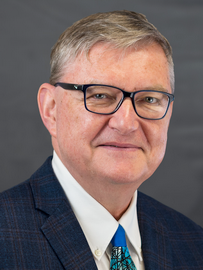Dr. Damir NOVOSEL
Damir Novosel is president and founder of Quanta Technology, a subsidiary of Quanta Services. While at Quanta, he also served as president of Quanta Energized Services. Previously, he was vice president of ABB Automation Products and president of KEMA T&D US. Dr. Novosel has served on various boards and is presently member of the Sandia National Laboratories Energy and Homeland Security External Advisory Board and Mississippi State University Industry Advisory Board. Dr. Novosel is also an adjunct professor at North Carolina State University.
Damir, a member of the US National Academy of Engineers and an IEEE Fellow, served as the IEEE Power and Energy Society (PES) president and the VP of Technology. He is a secretary of IEEE PES Executive Advisory Council, chaired the IEEE Industry Technical Support Leadership Committee, and served as a member of the IEEE Standards Board. Damir received the IEEE PES Patrick P. Ryan Meritorious Service and Leadership in Power awards and the CIGRE US National Committee Philip Sporn and Attwood Associate awards. He holds 18 US and international patents, published over 200 articles and reports, contributed to 7 books, and received two IEEE PES prize paper and a CIGRE distinguished paper awards.
Damir holds PhD, MSc, and BSc degrees in electrical engineering from Mississippi State University (where he was a Fulbright scholar), the University of Zagreb, Croatia, and the University of Tuzla, Bosnia and Herzegovina, respectively. Dr. Novosel was selected as Mississippi State University Distinguished Engineering Fellow and received the Distinguished Alumni Award.
Success Factors for Sustainable Electrical Energy Delivery and Decarbonization
The electrical power and energy industry is changing rapidly to meet the demands of society and address decarbonization needs. New technologies offer significant opportunities for realizing a sustainable energy future. The electrical grid is the customer’s physical connection to the energy system and the basis for integrating renewable energy resources and electrical transportation.
Identifying the best strategies to ensure reliable, resilient, and cost-effective delivery of electrical energy is needed to set a path to decarbonization. A resilient, modern electric grid is the foundation for our clean energy future, requiring renewables, energy storage, energy efficiency, and electrification. It is necessary to ensure that inverter-based resources like solar PV and battery energy storage systems have the capability to provide reliability and resilience services.
The grid also continues to face evolving challenges, such as cyber and physical attacks, major weather events (e.g., catastrophic wildfires, hurricanes, significant rain/snow incidents) and aging infrastructure. We have the opportunity to make it better than it was before by taking more aggressive actions to adapt, including grid infrastructure hardening and improved grid and equipment monitoring.
This presentation will discuss success factors for sustainable electrical energy delivery and address how various technologies help in solving society’s needs.


